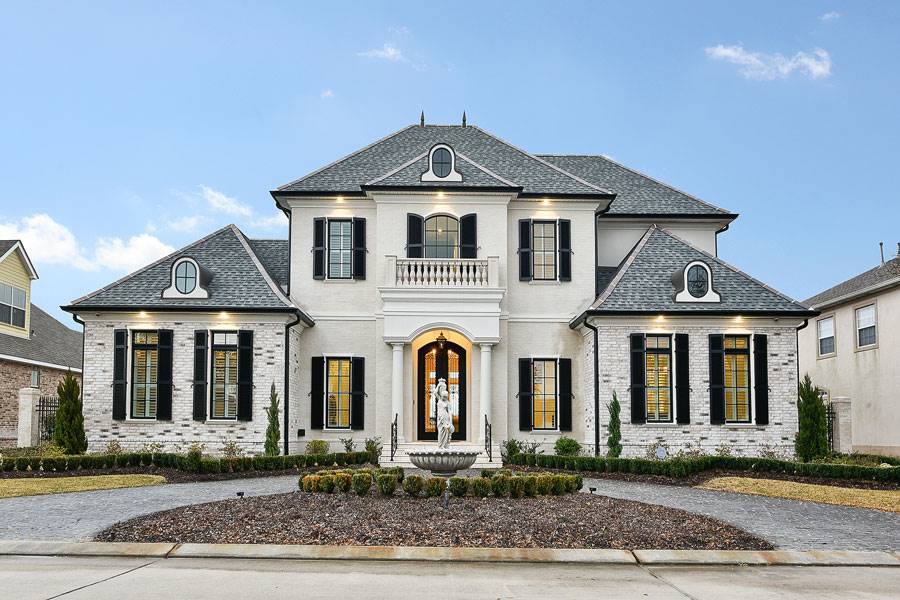When searching for the best retail space, 2 of the most typical business leases you'll come across are gross leases and triple net leases (or NNN "Net Net Net leases"). While both are popular-each type offers numerous advantages and disadvantages. When you're in the marketplace for retail area, it's valuable to be acquainted with both options to select the arrangement that finest serves your individual criteria and financial investment. Now let's explore the distinct benefits and drawbacks of a gross lease vs. a triple net lease, starting with necessary meanings.
What is a Triple Net (NNN) Lease?
Under the regards to a triple net lease, tenants are accountable for paying base rent to the property owner in addition to 3 (the "triple" in Triple Net) key expenditures: residential or commercial property taxes, building insurance, and common area maintenance (CAM).
The lease gets its "triple" name from the three key costs listed above while "net" represents the costs passed through to the renter beyond base lease. This can take place monthly, quarterly, or on an annual basis based upon pro rata share of the space.
Typically based upon the residential or commercial property's worth, residential or commercial property taxes paid to the local government cover the general public expense of servicing the structure and surrounding community from facilities and fire defense to lose collection. Note that these taxes are separate from any sales or excise taxes renters might pay due to their kind of company.
Common Area Maintenance (CAM)
CAM refers to charges related to the upkeep, repair, and renovation of shared locations of the building like car park, lobbies, bathrooms, hallways, and elevators.
Building Insurance
Building insurance safeguards against the cost of rebuilding (or repairing) residential or commercial property after unforeseeable occasions emerge such as fires, flooding, or storm damage. Plus, it can include liability insurance that covers against on-premise injury claims.
Since all 3 of these expenses are paid directly by the tenant, the renter has more control over how their money is spent along with the requirement of service.
An industrial listing with a triple net lease will typically estimate the base rent. For example, a commercial residential or commercial property might be listed as "$55 per foot, triple internet" or "$55/sq ft/year, NNN." If not available, you may need to ask for how much these pass-through expenses cost from the agent or property manager. Typically, these are offered per square foot so it's simple to include to the base lease.
A gross lease arrangement needs the renter to pay the residential or commercial property owner a flat rental cost in exchange for the exclusive use of the residential or commercial property. This charge consists of all costs associated with residential or commercial property ownership from taxes and utilities to insurance. Gross leases are common in the industrial residential or commercial property rental market (believe office suites or existing standalone structures) and may be customized to fulfill the needs of occupants.
Consider gross leases the streamlined counterpart to triple net leases. While the secret costs do not vanish, lease is quoted as an all-in rate, which implies the occupant pays one swelling amount of lease while the property manager handles the residential or commercial property taxes, typical area upkeep, and structure insurance.
A full-service gross lease includes any and all residential or commercial property expenditures (consisting of the triple nets and energies) which safeguards the renter from variable expenses like water and electricity and water. This makes it easier to forecast expenses without needing to take unforeseen bills into account.

A modified gross lease consists of only the base lease and the NNN expenses, but passes the expense of utilities and any other costs through to the renter.
You'll normally find a gross lease priced estimate as a single amount per square foot. It'll also be clear whether the lease is customized or full-service by how it appears. For example-a gross lease could look like "$60/sq ft/year, customized gross."
Gross Lease vs. Triple Net
The primary difference in between a gross lease and triple net lease? The proprietor is accountable for paying operating costs with a gross lease-while operating costs are the occupant's responsibility with a triple net lease. Beyond this distinction, there are a variety of reasons a landlord or occupant may select one lease structure over the other.
- Rent Costs
From a proprietor's viewpoint, triple net leases are structured to serve as an outstanding source of passive rental earnings due to the fact that they're more hands-off than a gross lease. On the other hand, the real lease paid to landlords is typically higher with a gross lease due to the fact that it combines all major expenditures of a building into one all-inclusive quote.
On the occupant side, a gross lease is beneficial because the cost of rent is fixed and complete, so there aren't additional costs connected with leasing the building. No "base rent and extra rent" component to think about. This provides property managers a single rate offer that's simpler for renters to understand. There's likewise a time-saving element because the occupant doesn't need to handle any administrative tasks associated with residential or commercial property financial resources.
Landlord and Tenant Responsibilities
Triple net leases protect both the property manager and renter. Landlords are secured if the expenses associated with running the residential or commercial property increase due to the fact that those costs are passed straight on to the renters that benefit from using the site. Beyond less responsibility for property owners, they can also expect longer-term occupancy. For the tenant, triple net leases provide an ability to audit the Common Area Maintenance (CAM) and ensure they're preserved properly and within budget. Beyond audit power, they can employ professionals of their option for optimal savings also.
Gross leases likewise have benefits and disadvantages around duty. In a gross lease, the property manager pays for all expenses associated with running the residential or commercial property while the tenant pays a higher base lease to cover this. A customized gross lease passes some costs through to the tenant-typically metered utilities like electricity and water. This simplifies the occupant's budget, given that they don't need to think about rising operating costs, but at the very same time it eliminates their ability to keep running costs down.
Unexpected Expenses
Depending on the regards to a triple net lease, a vacancy uptick may suggest a boost in the shared expenditures an occupant is anticipated to cover. Any increase in the cost of running a structure is ultimately recovered in any type of business real estate lease-but a triple net lease secures property managers from short-term variations in common location upkeep costs and residential or commercial property taxes. Gross rents empower renters to budget plan expenditures, which is especially beneficial for those with restricted resources or services seeking to maximize earnings by decreasing variable costs.

Lease Length
Triple net leases usually tend to be long-term due to the fact that tenants won't wish to incur the expenses connected with a residential or commercial property's maintenance unless they plan to be in the area for a significant time period. That's why triple net leases are more typical for longer-term leases spanning a minimum of 5 to 10 years. Stability and predictability serve both the property manager and renter.
On the other hand, gross lease term lengths are often three to five years (if not shorter!) considering that the property manager carries more of the danger. Depending upon the industrial retail market, it's not unusual to provide a 12 or 18 month gross lease.
Building Maintenance
If you're a property owner, be sure to aspect in maintenance expenses. Common area upkeep (CAM) charges are the property owner's duty under a gross lease arrangement. So, if these costs unexpectedly rise due to the need for constructing maintenance, repair work, or rising energy prices-it's the property owner who pays. The benefit? Landlords are empowered to better control those expenses by handling structure upkeep by themselves terms.
On the occupant side, consider the truth that costs pass through from the proprietor to you in a triple net lease, which suggests any restoration costs are effectively paid by tenants up-front instead of repaid through partially increased rent over the period of the lease. Simply put? Higher restoration costs for tenants.
Gross Lease Advantages And Disadvantages for Landlords
Including operating costs in the rental cost includes up to more income.
When the cost of living boosts every year, property owners can hand down any inflammatory costs to their renters.
Landlords must take responsibility for any additional costs related to residential or commercial property ownership-and that includes the unanticipated kind, like maintenance issues or increasing energy expenses.
Residential or commercial property owners supervise of time-consuming administrative responsibilities such as expense payment and more.
Gross Lease Pros and Cons for Tenants
The repaired cost of lease means there aren't any extra costs associated with renting the building.
Tenants save time since they don't have to manage any administrative duties connected with residential or commercial property finances.
Rent is normally greater, although there are not any additional costs to pay.
Residential or commercial property maintenance may not be properly kept updated depending upon the kind of proprietor and their concerns.

Triple Net Lease Benefits And Drawbacks for Landlords
Landlords can rely on a triple net lease as a constant revenue stream.
Landlords can expect less hands-on management because any residential or commercial property management expenses (residential or commercial property taxes, common area upkeep, and structure insurance) are on the tenant. Big photo, that means triple net leases give proprietors more energy and time to focus on their primary business.
Identifying reputable occupants all set to sign a triple net lease might prove to be tough. Tenant credit threat can be an issue for proprietors because the occupant's monetary health directly impacts their capability to take care of business expenses.
Vacancy is likewise an element. Downtime in-between occupants suggests no rental earnings coming in.
Triple Net Lease Benefits And Drawbacks for Tenants
Tenants in a triple net lease have the ability to manage residential or commercial property appearance and maintenance.
Tenants have direct control over energy costs like water and electricity along with their favored insurance provider.
Unexpected costs like tax liability or building upkeep can and do emerge.
Tenants presume risks around upkeep costs, residential or commercial property tax dangers, and any insurance coverage price increases.
Tenants will require to hang around and energy on residential or commercial property management from choosing insurance coverage and managing tax problems to comparing and hiring maintenance contractors.
If proprietors overestimate operating costs when determining the rental price, tenants may wind up overpaying for select expenses.
Ultimately, you'll discover pros and cons to both gross and triple net leases. Full-service and modified gross leases offer advantages for both parties with the opportunity to strike a healthy balance-while triple net leases usually prefer landlords since the threat is moved to the tenants. Understanding the distinctions between each lease structure lets you pick the option aligned with the benefits you seek and obligations you're prepared to handle. It's all about what's finest for you and your company.
___________________________
Who We Are
A one-stop shop servicing commercial property property managers and retail renters, our group supplies all-inclusive services for NYC neighborhood retail.
Around here, our forward-thinking approach leverages emerging innovations, content-based marketing, and a deep understanding of the marketplace to much better match property owners and renters. Together we enhance the leasing procedure so people like you can better concentrate on their company.









